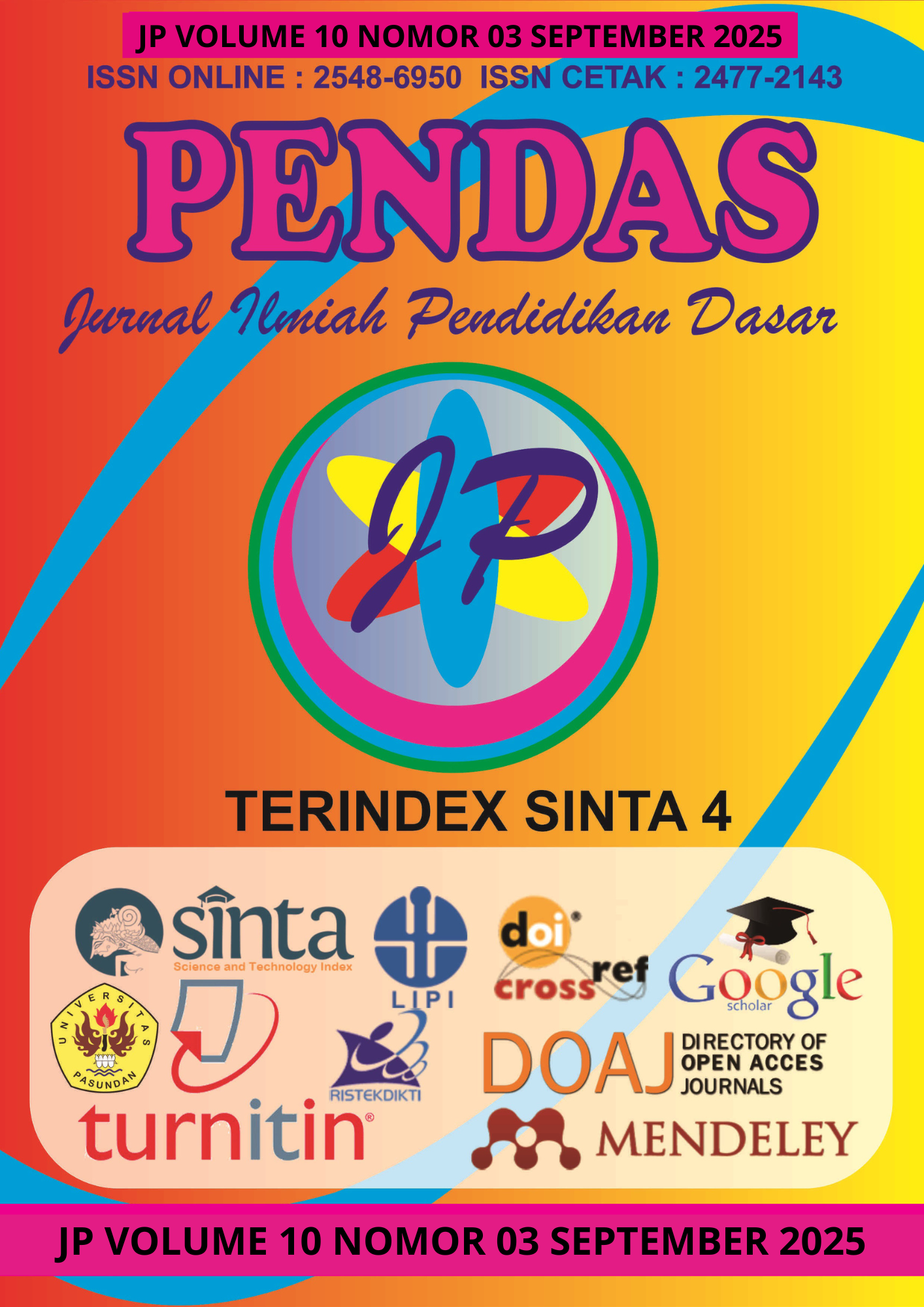EVALUASI PENERAPAN PEMBELAJARAN BERDIFERENSIASI PADA SISWA SEKOLAH DASAR
DOI:
https://doi.org/10.23969/jp.v10i3.29595Keywords:
CIPP evaluation, primary school IPAS, differentiated learningAbstract
This study aims to evaluate the implementation of differentiated learning in Natural and Social Sciences (IPAS) subjects in grade IV of SD Kanisius Cungkup and SD Kanisius Gendongan, Salatiga. The research used a mixed methods approach with the CIPP (Context, Input, Process, Product) evaluation model. Data were collected through observation, interviews, and questionnaires, then analyzed using MAXQDA and testing the validity and reliability of the instrument. The results showed that the implementation of differentiated learning had a positive impact on increasing student participation, motivation, and learning outcomes. Evaluation from the aspects of Context (96%), Input (96.93%), Process (96.4%), and Product (98.8%) showed very high category. In addition, the results of qualitative analysis showed a strong link between fun learning activities and students'understanding of the IPAS concept. However, challenges such as time constraints and teacher training needs are still obstacles in its implementation. This study concludes that differentiated learning is effective in creating an adaptive, inclusive and meaningful learning environment. Recommendations are aimed at developing teacher training and long-term planning to optimize the quality of implementation.
Downloads
References
Judijanto, L., Wibowo, G. A., Karimuddin, K., Samsuddin, H., Patahuddin, A., Anggraeni, A. F., & Simorangkir, F. M. A. (2024). Research Design: Pendekatan Kualitatif dan Kuantitatif. PT. Sonpedia Publishing Indonesia.
Handoko, Y., Wijaya, H. A., & Lestari, A. (2024). Metode Penelitian Kualitatif Panduan Praktis untuk Penelitian Administrasi Pendidikan. PT. Sonpedia Publishing Indonesia.
Marzoan. (2023). PENERAPAN PEMBELAJARAN BERDIFERENSIASI DI SEKOLAH DASAR (Tinjauan Literature dalam Implementasi Kurikulum Merdeka). Renjana Pendidikan Dasar, 3(2), 113–122.
Faiz, A., Pratama, A., & Kurniawaty, I. (2022). Pembelajaran Berdiferensiasi dalam Program Guru Penggerak pada Modul 2.1. Jurnal Basicedu, 6(2), 2846–2853. https://doi.org/10.31004/basicedu.v6i2.2504
Ramadhan, M. F., Siroj, R. A., & Afgani, M. W. (2024). Validitas and Reliabilitas. Journal on Education, 6(2), 10967–10975.
Fitra, D. K. (2022). Pembelajaran Berdiferensiasi dalam Perspektif Progresivisme pada Mata Pelajaran Ipa. Jurnal Filsafat Indonesia, 5(3), 250–258.
Hasriadi. (2022). Metode Pembelajaran Inovatif di Era Digitalisasi. Jurnal Sinestesia, 12(1), 136–151. https://sinestesia.pustaka.my.id/journal/article/view/161
Sili, F. (2021). MERDEKA BELAJAR DALAM PERSPEKTIF HUMANISME CARL R. ROGER. JURNAL PENDIDIKAN DASAR PERKHASA: Jurnal Penelitian Pendidikan Dasar, 7(1), 47–67. https://doi.org/10.31932/jpdp.v7i1.1144
Waruwu, M., Puat, S. N., Utami, P. R., Yanti, E., & Rusydiana, M. (2025). Metode penelitian kuantitatif: Konsep, jenis, tahapan dan kelebihan. Jurnal Ilmiah Profesi Pendidikan, 10(1), 917–932.
Downloads
Published
Issue
Section
License
Copyright (c) 2025 Pendas : Jurnal Ilmiah Pendidikan Dasar

This work is licensed under a Creative Commons Attribution 4.0 International License.














































